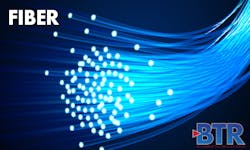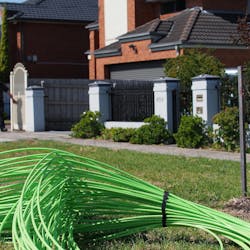Internet service providers (ISPs) and telecom operators are offering higher and higher access speeds. At the same time, users at homes are interconnecting more and more devices and to the Internet. This translates in a crowding of the home network that has to carry all this traffic between the devices and to/from the Internet.
Despite the significant investments made in broadband networks in order to keep pace with the consumer’s increasing demands, the home network has been left behind. ISPs and telecom operators offer higher and higher Internet access speeds, but they have ignored issues and challenges in deploying this in the end users' homes. As a result, ISPs and telecom operators are experiencing degrading customer satisfaction levels. The paradox is that the customer satisfaction reduces while the offered Internet speed increases.
Quality of experience as the main differentiator
This is particularly worrisome, since quality of experience (QoE) is quickly becoming the main differentiator for broadband service providers. The home network is key to the delivery of QoE, and broadband service providers will need to find cost-effective solutions that can meet the expectations - both today and in the future - of all their customers, regardless of their home environment.
ISPs and telecom operators have been investigating various potential solutions whereby plastic optical fiber is considered a very interesting option.
Optimizing customer satisfaction
As manager for client equipment at Telefonica, Marcos Benito Garcia has been directly involved in a proof of concept that Telefonica carried out in order to test plastic optical fiber in the home. Garcia said: “Plastic optical fiber allows Telefonica to extend our WiFi coverage by deploying a backbone in the customer’s home, which guarantees 1 Gbps connection speeds throughout the house. This allowed the test group to enjoy our TV service and other new services we are offering, like online gaming and 4K (also known as UltraHD TV), in the highest quality.”
The plastic optical fiber serves as a backbone with a WiFi mesh node and access points to increase whole-home connection speeds. The plastic fiber can reuse existing conduit or other cable runs within the home.
Since the home network is key to QoE, the solution helps to increase customer loyalty.
Sara Martin-Sanz Albendea (a project manager at Telefonica and responsible for the project which – within Telefonica – is called “Plastic Optical Fiber in the House”) confirmed this. Martin-Sanz Albendea said: “In today’s world, connectivity is essential for people in both their personal and professional lives. Spanish technology company KDPOF, which Telefonica Ventures also invested in, has developed a solution which improves the customer experience by guaranteeing the speed and bandwidth that can actually be delivered inside the homes. This has a direct impact on the customer satisfaction.”
Future-proof
The feedback that Telefonica received from the group that initially tested the solution was extremely positive. Martin-Sanz Albendea said: “On average, people rated their experience 4.6 out of 5, so they were very satisfied. The people that were especially satisfied were those who lived in attached or semi-attached houses who had previously had problems with WiFi connectivity in the highest or lowest floors of their house. With the installation of plastic optical fiber, they were able to achieve very high speeds and bandwidth everywhere in their house.”
Martin-Sanz Albendea said the joint offering would be future-proof: “In most cases, WiFi channels are not saturated as yet. But as long as we will continue to use the 5 GHz band, saturation will increase. The benefit of plastic optical fiber is that it guarantees great connectivity in all rooms of our customers’ houses. For operators such as Telefonica, this will be a great differentiator. It clearly brings the customer experience to a different level.”
Carlos Pardo is CEO and co-founder of KDPOF.





